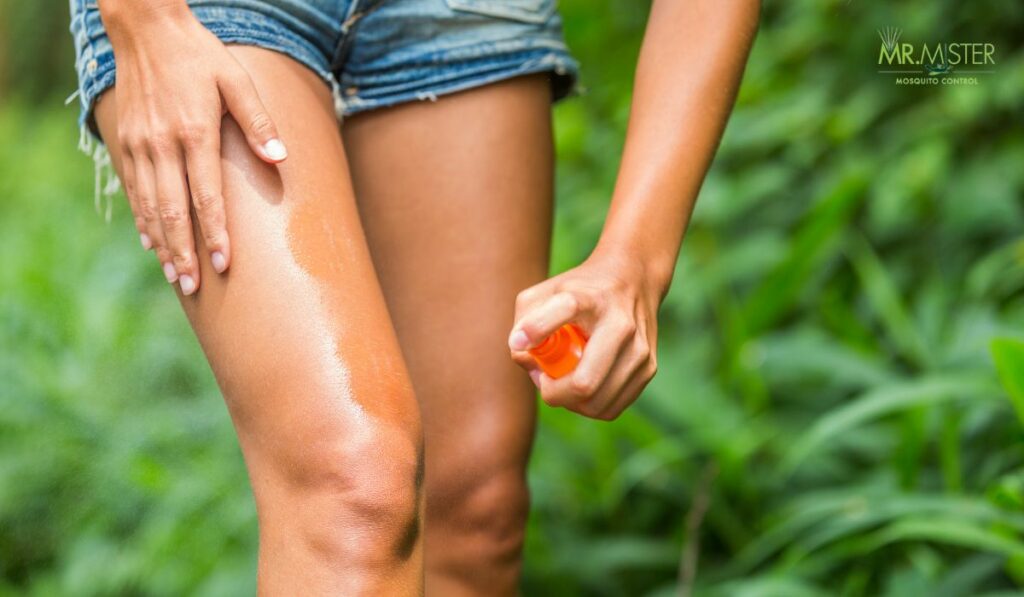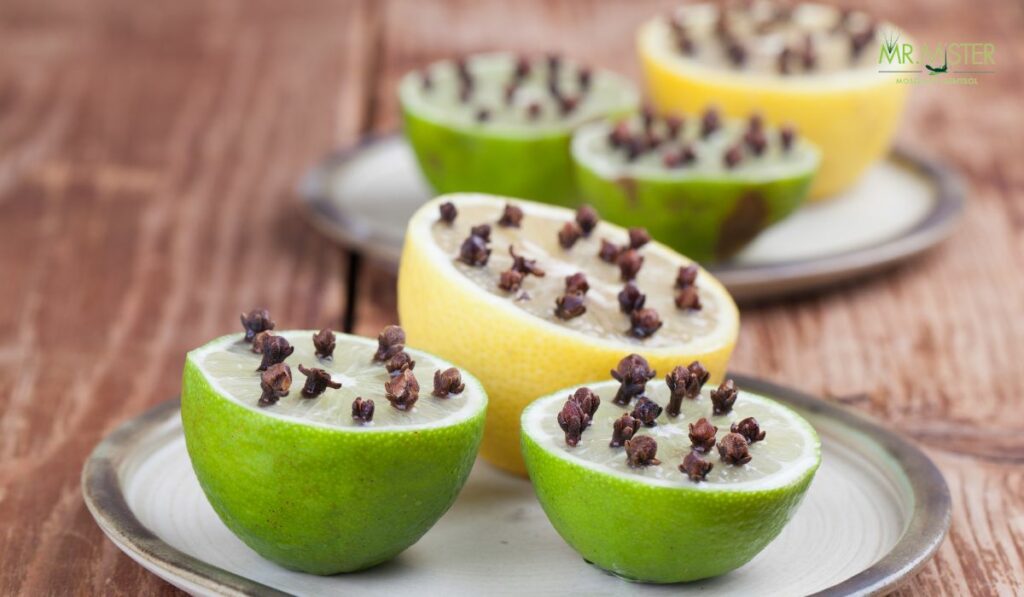Natural or Synthetic Mosquito Repellents: Which One Should You Choose?
Mosquitoes can be a nuisance, especially during the warmer months when they are most active. Protecting yourself from mosquito eating is essential to avoid discomfort and the risk of mosquito-borne diseases. When choosing a mosquito repellent, you have two main options: natural or synthetic repellents. In this topic, we will explore the characteristics & effectiveness of both types to help you make an informed decision.
Natural Mosquito Repellents
Natural mosquito repellents are derived from plant-based ingredients. These repellents typically contain essential oils extracted from plants known for their mosquito-repelling properties, such as citronella, lemongrass, peppermint, or eucalyptus. These repellents are often marketed as a more environmentally friendly and safer alternative to synthetic options. They are generally considered safe for use in both adults and children.
The effectiveness of natural mosquito repellents can vary. While some studies suggest that certain plant-based oils can provide short-term protection against mosquitoes, their energy tends to be shorter-lived compared to synthetic repellents. Natural repellents need to be reapplied more frequently to maintain their effectiveness.
Synthetic Mosquito Repellents
Synthetic mosquito repellents are formulated with chemical compounds, such as DEET (N, N-diethyl-meta-toluamide), picaridin, or IR3535. These ingredients have been extensively tested and proven highly effective in repelling mosquitoes. Synthetic repellents often provide longer-lasting protection and are considered more reliable in areas with high mosquito activity or regions with prevalent mosquito-borne diseases.
One of the most commonly used synthetic repellents, DEET, has been widely studied and deemed safe when applied according to the instructions. However, it’s important to note that some individuals may experience skin irritation & allergic reactions to synthetic repellents. It is recommended to follow the usage guidelines provided by the manufacturer and avoid applying these products on broken or irritated skin.
Making the Choice
Several factors should be considered when deciding between natural and synthetic mosquito repellents. Here are some key points to help you make the right choice:
Effectiveness: Synthetic repellents, particularly those containing DEET or picaridin, are generally considered more effective and longer-lasting than natural repellents. Synthetic repellents may provide better protection in areas with a high mosquito population or face a higher risk of mosquito-borne diseases.
Duration of Protection: Synthetic repellents often offer longer-lasting protection, requiring fewer applications than natural repellents. This can be advantageous, especially during extended outdoor activities or overnight camping trips.
Personal Preferences and Sensitivities:
Individuals prefer natural products due to personal preferences or concerns about potential chemical exposure. If you have sensitivities to certain chemicals or prefer plant-based alternatives, natural repellents can be suitable.
Environmental Considerations:
Natural mosquito repellents are often promoted as more environmentally friendly. However, it’s important to note that producing and sourcing plant-based oils used in natural repellents can also have environmental impacts. Consider the ingredients’ overall environmental impact and sustainability when choosing.
Age and Safety: Natural mosquito repellents are generally considered safe for children, whereas synthetic repellents may have age restrictions or require careful application on young children. Always read the labels and follow the recommended age guidelines for each product.
In conclusion, the choice between natural and synthetic mosquito repellents ultimately depends on your specific needs, preferences, and the level of mosquito activity in your area. Both options have their advantages and considerations. Remember to follow the order provided by the manufacturer and take the necessary precautions to protect yourself from mosquito bites.
FAQs
Are natural mosquito repellents as effective as synthetic ones?
Natural mosquito repellents can provide some protection against mosquitoes, but their effectiveness tends to be shorter-lived compared to synthetic repellents. Synthetic repellents, particularly those containing DEET or picaridin, are generally considered more effective.
Are natural mosquito repellents safe for children?
Natural mosquito repellents are often considered safe for use in children. However, it’s advisable to check the specific product labels and follow the recommended age guidelines provided by the manufacturer.
What are the potential side effects of synthetic mosquito repellents?
Synthetic mosquito repellents, such as those containing DEET, can cause skin irritation & allergic reactions in some individuals. Testing a small area of skin before applying the repellent is recommended, and avoid using it on broken or irritated skin.
Can natural mosquito repellents be used during pregnancy?
It is generally safe to use natural mosquito repellents during pregnancy. However, it’s always a good idea to consult your healthcare provider before using any products during pregnancy.
How often should mosquito repellents be reapplied?
The frequency of reapplication depends on the type of repellent used. Natural repellents may need to be reapplied more frequently than synthetic repellents to maintain their effectiveness. Read the instructions on the product label for specific guidance.
Can mosquito repellents be used on pets?
It is not recommended to use human mosquito repellents on pets. Consult with a veterinarian for appropriate mosquito repellent options for your pets.
Do natural mosquito repellents have any scent?
Natural mosquito repellents often have a distinct aroma due to the essential oils used. The smells can vary depending on the ingredients, with fragrances like citronella, lemongrass, or eucalyptus commonly found in natural repellents.
Are there any natural alternatives to DEET?
Yes, there are natural alternatives to DEET, such as repellents containing picaridin or oil of lemon eucalyptus. These ingredients can provide adequate mosquito protection without the use of DEET.
Can natural mosquito repellents repel other insects besides mosquitoes?
Some natural mosquito repellents may also have repellent properties against other insects, such as flies or gnats. However, their effectiveness may vary, and it’s best to check the product labels for specific insect-repellent claims.
Are synthetic mosquito repellents harmful to the environment?
Synthetic mosquito repellents have a minimal environmental impact when used according to the instructions. However, improper disposal or excessive use can contribute to environmental pollution. It’s essential to follow the guidelines for usage and removal.
Can I use natural and synthetic mosquito repellents together for added protection?
It is generally optional to use both natural and synthetic mosquito repellents together. Choose one type that suits your preferences and needs. Using multiple repellents simultaneously may increase the risk of adverse reactions or unnecessary chemical exposure.
Do mosquito-repellent wristbands or patches work effectively?
Mosquito-repellent wristbands and patches may offer limited protection close to the area where they are applied. However, their effectiveness in providing comprehensive and long-lasting protection against mosquitoes may be limited compared to topical repellents.
Conclusion
When choosing between natural and synthetic mosquito repellents, consider factors such as effectiveness, duration of protection, personal preferences, and environmental impact. Natural repellents are safer and environmentally friendly, but synthetic options offer longer-lasting protection. Follow usage guidelines and take necessary precautions to stay protected from mosquito bites and reduce the risk of mosquito-borne diseases.
* Schedule a Free Mosquito Control Consultation – 404-941-0720 *
* Guaranteed Results * 100% Biodegradable * Locally Owned







